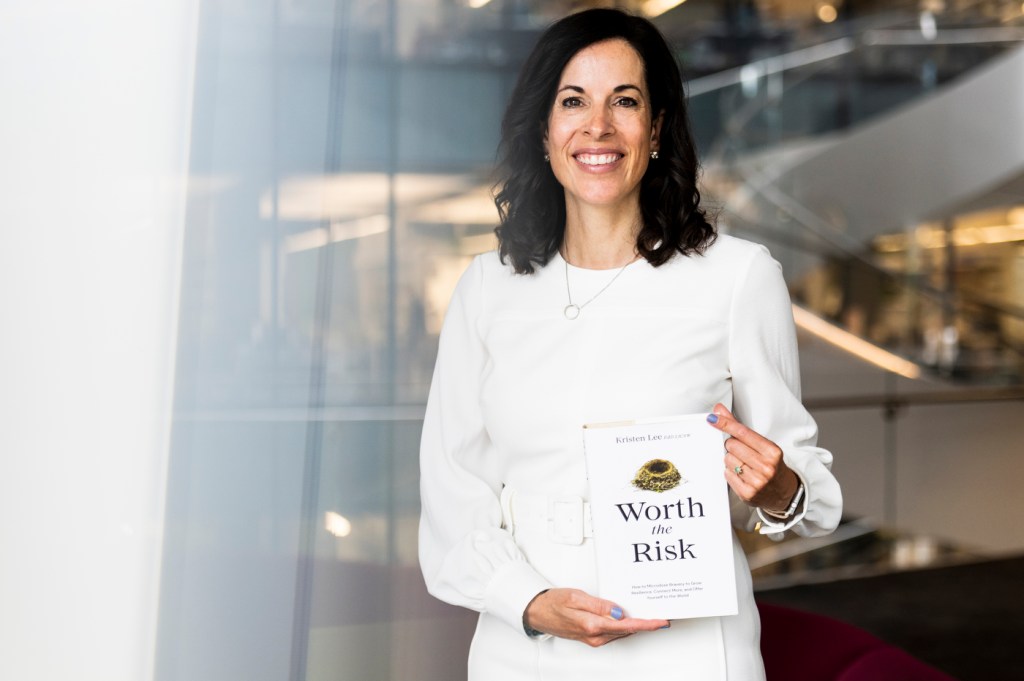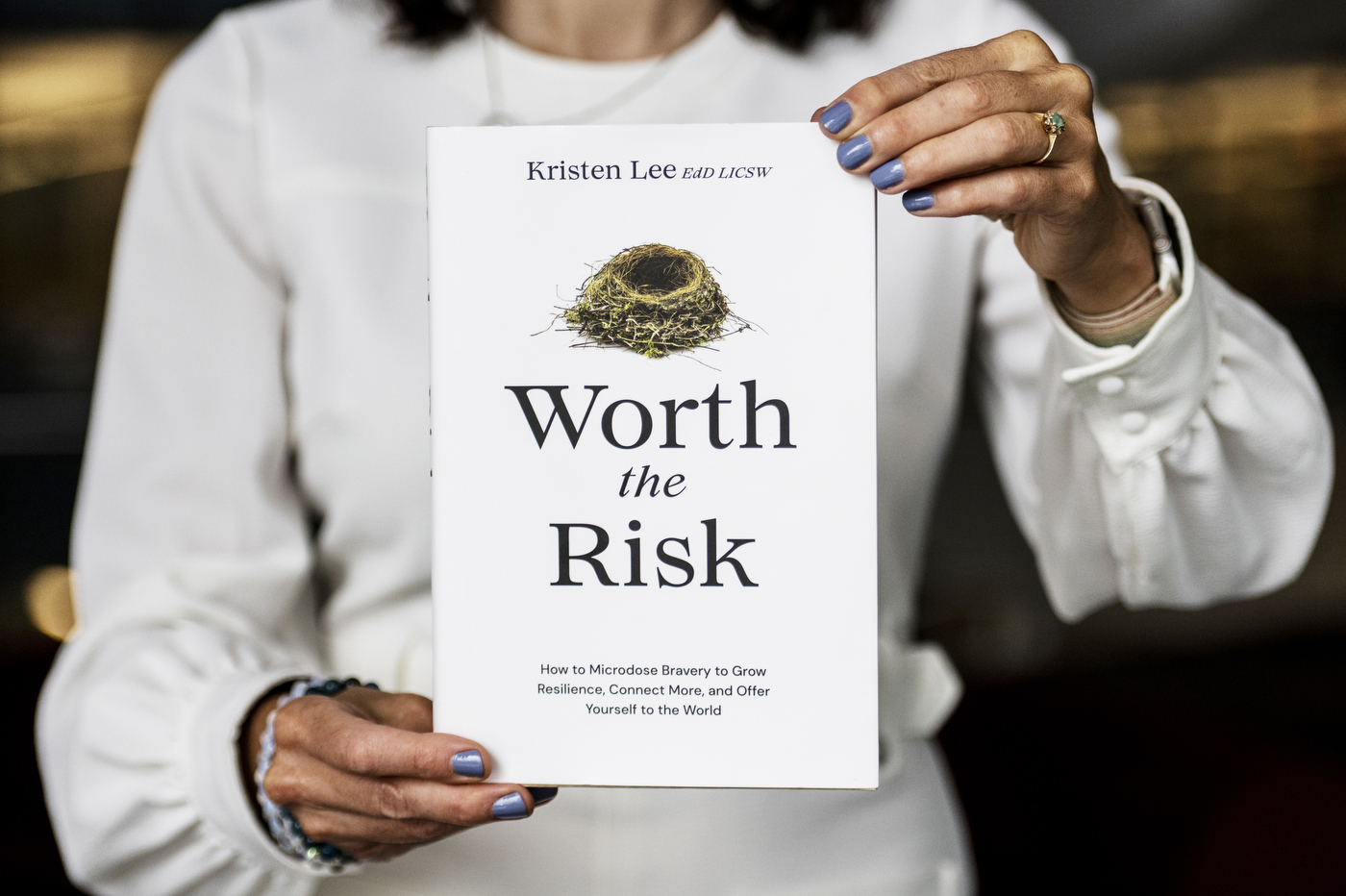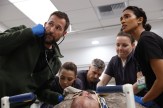Feeling Overwhelmed? Try Microdosing Bravery

Like many who struggle with anxiety, professor Kristen Lee found herself living in a “what if” perspective. “What if the pandemic hadn’t happened? What if there’s even more trauma around the corner?”
Lee is a behavioral science professor in Northeastern University’s College of Professional Studies and a psychotherapist. On top of all that, she performs standup comedy. Lee, who has an Excellence in Teaching Award and a popular TEDX Talk, recently published her third book, “Worth the Risk: How to Microdose Bravery to Grow Resilience, Connect More, and Offer Yourself to the World.”
But despite these accomplishments, anxiety, imposter syndrome and these “what ifs” can quickly spiral out of control: “What if things get even worse, and I don’t have the courage it takes to face what must be faced?” Lee says.
Lee’s solution? Learning how to take small risks, slowly expanding one’s comfort zone to create gradual but unending personal growth, not just for the sake of one’s self, but for needed social change.

In “Worth the Risk,” Lee argues that microdosing bravery—taking small, carefully modulated risks on a day-to-day basis—can help overcome past traumas and build the resilience needed to face new, unexpected challenges.
Living in a state of anticipatory anxiety, a state that many can identify with after events like the COVID-19 pandemic or the Jan. 6 insurrection, can harm our mental health and restrict our ability to live a fulfilling life, Lee says.
To overcome anxieties like these, Lee recommends changing our mindset to a “what is” perspective. “It’s really about unlearning our fears,” she says, “getting comfortable with the uncomfortable, as we all adjust to new realities and grapple with the trauma that we have endured and are enduring.”
“What the science of behavior change shows us,” she says, “is that when we’re very strategic, and we expose ourselves a little bit at a time to discomfort, and then we integrate that into our experiences, that can help us build the gumption, and the momentum and the courage, to forge ahead.”
In other words, we need resilience, which has been somewhat misunderstood, according to Lee. We may think that resilience is an inborn trait, which some people simply have and others don’t, but modern understandings of the brain show that resilience takes cultivation, and is more of a process than an inert attribute.
Changing one’s behavior comes more from small, strategic steps than from a radical overhaul that may never wind up taking permanent root. “Resilience starts with clarity of our values,” Lee says, “our own vision for our lives,” even if this sometimes means going against the wishes of one’s family or community of origin.
And sometimes, she says, “it’s better to risk looking foolish than feeling good.”
If this sounds both compelling and nerve racking, “Worth the Risk” offers a toolkit designed to help readers take those initial doses of confidence-building bravery. The end of each chapter provides a worksheet with inspiration, questions for self-reflection, and small steps one can take to continue microdosing risk and building resilience.
“If we think about microdosing bravery,” Lee reminds, “and thinking about risks that are worth taking that align with our values, it will invite a deeper level of satisfaction into our lives.”
“Microdosing” bravery can take a lot of the pressure off to change overnight. Just take one small risk today, and another tomorrow. All those little successes may add up to a new, more courageous you, she says.





